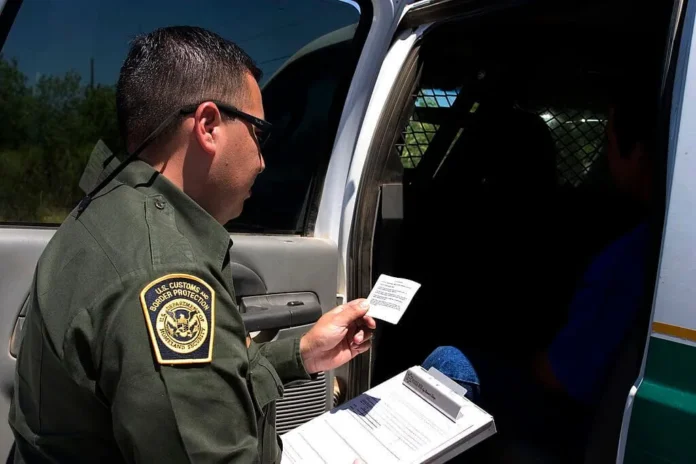Miranda rights stand as a cornerstone of American criminal law, ensuring that those accused of crimes are fully aware of their legal protections before being questioned by law enforcement. These rights originated from the landmark 1966 U.S. supreme court case, Miranda v. Arizona, which established that detained individuals must be informed of their rights to remain silent, that anything they say can be used against them in a court of law, their right to an attorney, and that if they cannot afford an attorney, one will be provided for them. The purpose is to prevent self-incrimination in alignment with the fifth amendment. Reflecting on their historical importance, Miranda rights highlight the need to maintain a fair balance of power between the government and the individual.
Among the general public, Miranda rights have been thrust into the limelight through countless television dramas and cop shows, leading to a widespread, albeit sometimes superficial, recognition. This pop-culture portrayal, however, may not fully capture their legal implications and the subtle aspects of invoking these rights. Despite their dramatization, these rights are a key component of the justice system, safeguarding individual liberties by ensuring that those in custody do not accidently waive their constitutional protections. These rights serve as a vital mechanism by which the due process of law is upheld, and they play a key role in how a defense lawyer operates, guaranteeing that every accused person has a fair chance to defend against the charges brought forth.
Understanding the Intent Behind Miranda Rights

Miranda rights, an important part of American legal practice, are intended to protect against self-incrimination and confirm that persons are fully informed of their rights while under police custody. Police officers are obliged to inform detainees of their privilege to remain silent, noting that any statement they make may be employed against them in a court of law, the right to legal representation, and that if they are unable to afford an attorney, one will be appointed for them.
This procedure, informally known as being “Mirandaized,” is needed for differentiating voluntary admissions and compelled confessions. The heart of Miranda rights is to ensure that individuals do not inadvertently forfeit their fifth amendment protection against self-incrimination during questioning. It is a legal precaution aimed at maintaining the integrity of the judicial system by ensuring that suspects are aware of their rights to resist undue influence and avoid making potentially self-damaging statements.
Miranda Rights in Arrest and Interrogation
The Miranda warnings, a cornerstone of American criminal procedure, become essential during an arrest or interrogation when a person is in police custody and subject to questioning. These warnings, which inform suspects of their right to remain silent and have legal counsel, are imperative for ensuring the fifth amendment’s protection against self-incrimination is upheld.
Law enforcement officers must carefully integrate these advisories into their procedures, often needing to issue the warnings before commencing with any form of questioning. If the police fail to provide the Miranda warnings, it can greatly affect the case; any statement or confession obtained in such circumstances may be deemed inadmissible in court. This procedural safeguard emphasizes the balance the justice system strives for between effective law enforcement and the protection of individual rights.
The Consequences of Ignoring Miranda Rights

When law enforcement officers fail to provide Miranda rights to a suspect, the impact on the legal process can be profound and extensive. Often, disregarding these rights can result in cases being thrown out, as courts might rule any self-incriminating statements acquired without a proper Miranda warning as not permissible in court. This rule serves as a protection, confirming that defendants are not forced to incriminate themselves.
What’s more, the presence or absence of these warnings can greatly affect plea agreements, with defendants more inclined to challenge accusations if they sense that evidence against them was gathered in contravention of their rights. Beyond individual incidents, habitual infractions can lessen public confidence in the legal system and instigate alterations in judicial precedents, leading courts to adjust the interpretation and application of Miranda rights as time progresses.
Educating the Public on Their Miranda Rights
Every day, innumerable individuals come into contact with the judicial system, making it central for them to be aware of their fundamental rights, one being the Miranda rights. Despite their significance, there is still a challenge in broadening awareness and fostering a robust understanding of these rights. People who interact with law enforcement might not grasp the full implications of their Miranda rights or feel capable of asserting them, especially those from underserved communities or those with scant legal insight.
Education initiatives and methods are at the heart of ongoing work to demystify legal terminology, making it understandable to everyone. These efforts include local seminars to internet materials, designed to close the information gap between legal regulations and societal awareness. By advancing these educational ventures, the objective is not just to enhance legal knowledge but also to reinforce a fairer and more equal legal framework where each person is educated and resolute when managing legal encounters.
Miranda Rights and the Future of Criminal Justice

The Miranda rights have long stood as a bastion of the criminal justice system, ensuring that individuals are aware of their rights during an arrest. However, recent years have seen a swell of debates questioning the interpretation and scope of these rights. It’s not just legal scholars pondering over dusty tomes; the advent of sophisticated technology has affected the enforcement of Miranda warnings. From body cameras to AI processing, technology is revolutionizing how these rights are read and recorded, possibly requiring new protocols to maintain their integrity.
What’s more, the intersection of innovation and individual liberties signals a call for potential reforms. With every new development, the legal arena adapts, leading to a changing nature of rights. As we look to the future, the certainty of change in how Miranda rights are upheld is the only thing as clear as the rights themselves—life, liberty, and the pursuit of fair prosecution remain at the center of the debate.
In conclusion, Miranda rights are key in providing a just legal procedure, acting as a shield against the potent influence that may be present during police questioning. The balance they strike between effective law enforcement and the protection of individual freedoms illustrates the judicial system’s vision in safeguarding citizens from potential misuse of authority. As society and legislation change, the Miranda rights persist, remaining pertinent and essential. Their presence serves as a reminder that justice must be imparted with a dedication to the rights granted to each person by the law.







